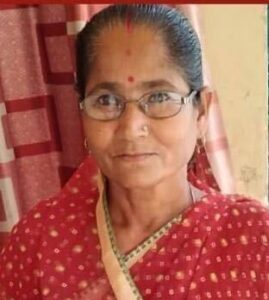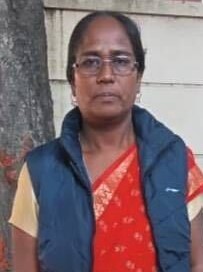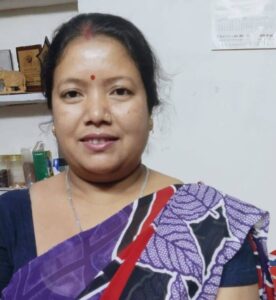India’s domestic workers, like much of the world, are mostly women. Their essential work—cooking, cleaning, doing laundry, and caring for children—is often invisible or denigrated. And the legacy of India’s caste system still looms large. Many domestic workers come from Dalit families, whose access to education or job opportunities continue to be limited by their community’s place in the social hierarchy.
Altogether, this makes for a perfect recipe for rampant exploitation and abuse. But with the Fund’s support, grassroots activists are helping domestic workers fight back and claim their rights.
For more than a decade, the Rajasthan Domestic Workers Organization has worked to break down both gender- and caste-based biases and discrimination and create safe, equal workplaces. The 7,000-member organization helps domestic workers advocate for fair pay, create claims against employers who sexually harass them, and even secure food and negotiate back pay during India’s COVID-19 lockdown. They’ve also advocated nationally, helping draft a new bill for the protection and rights of domestic workers that is still pending legislation.
The Fund has proudly supported their work since 2018, helping workers and their families reclaim power through the size of their movement and tackle inequality with women-led strategies.
Their feminist lens is also turned to the next generation through an initiative aimed at the daughters of domestic workers. The group surveyed 200 girls about their aspirations, finding that most dream of higher education and want to know how to prevent abuse. As a result, they developed a “Girls Power” program to provide guidance around career and school options, education around women’s rights, and sexual and reproductive health resources.
With the support of the Fund and our donor community, including the Regan Ralph Feminist Leadership Fund, the Rajasthan Domestic Workers Organization is changing the course of women workers’ and their families’ lives.
Meet three incredible women from the Rajasthan Domestic Workers Organization.
 “Rajasthan Domestic Workers Organization is a part of my life now. It has helped us to realize what our rights are.
“Rajasthan Domestic Workers Organization is a part of my life now. It has helped us to realize what our rights are.
We were able to confront with house owners, government on the issues affecting us. Here, we just don’t talk about our rights but we also talk about overall women’s rights to promote gender justice.” – Basana Chakravarthy, district secretary
 “Before joining, I had no idea about labor rights as domestic workers. Now, I conduct regular meetings with the members to understand their issues. We are here to secure our dignity and social justice.
“Before joining, I had no idea about labor rights as domestic workers. Now, I conduct regular meetings with the members to understand their issues. We are here to secure our dignity and social justice.
Two of my daughters have been part of Girls Power. Today, after completion of their education, they work in private sector … Girls Power provided them a much-needed platform through which they have gained confidence.” – Rahima
 “I do regular meetings with members and see that none of our members are given any trouble by the house owners where they work. Most of the domestic workers in Jaipur are from West Bengal. And since we come from other state, we used to face lot of discrimination from the house owners. They used to give us food in different plates, there was no weekly day off for us. However, after the group’s intervention these issues aren’t common anymore. – Saraswati
“I do regular meetings with members and see that none of our members are given any trouble by the house owners where they work. Most of the domestic workers in Jaipur are from West Bengal. And since we come from other state, we used to face lot of discrimination from the house owners. They used to give us food in different plates, there was no weekly day off for us. However, after the group’s intervention these issues aren’t common anymore. – Saraswati
Sign up to our newsletter
Add some impact to your inbox.
By submitting this form, you accept that your data will be stored and processed in line with our Privacy Policy.


